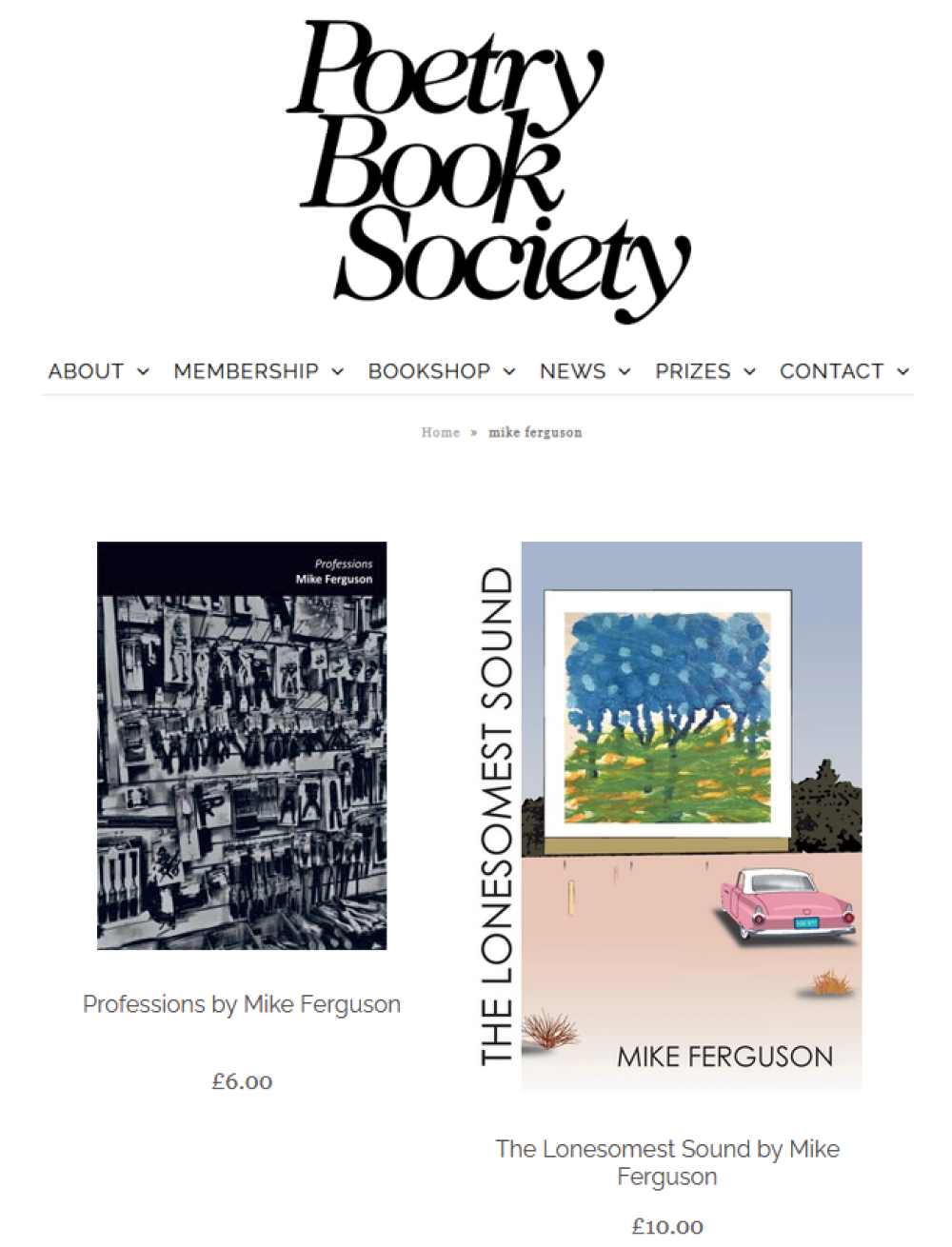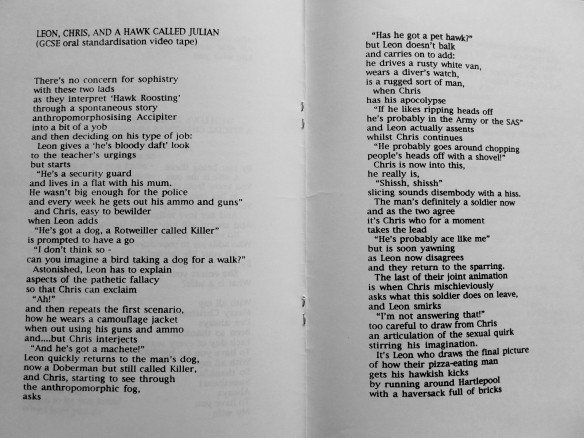This posting isn’t based on any intensive research and analysis, but is based on real experience and genuine quotations to illustrate. I mention because I am not attempting to construct some detailed, informed overview on time and context, though the observations I will make on the time and context in which the evidence appeared does have relevance and thus deserves an element of explanation. The point is I am sharing for the overall humour of the contents rather than an overly serious extrapolation from them.
[You could go to the quotes now if you just want a smile and not a mini-lecture]
What follows are quotes which are student ‘howlers’ written in GCSE English Literature poetry examinations from some years ago – there isn’t anything here that is recent. I mention this first aspect of their timing because over the last 5 years and perhaps even 10, students have become increasingly well prepared for their examination responses. As a consequence of effective teaching, this is demonstrably a positive development. Teachers have become much more aware of Assessment Objectives linked to a GCSE subject and syllabus and teach carefully to this. Years of teaching a particular text also builds up a professional expertise that gets passed on to students, both in terms of knowledge about a particular text and the methods by which a student conveys that understanding to secure maximum marks in the exam context/situation. And this means students tend to write cogently!
Again with the caveat that this isn’t a comprehensive account to address a hypothesis, there are negative aspects to this move towards such meticulous preparation. At one end of the spectrum, the prevalence of teaching PEE [or similar acronyms] leads many students to an over-reliance on a formulaic response to exam questions, not least writing personal reminders to ‘PEE’ all over their papers; and at the other, teaching students to analyse literary texts with complex linguistic approaches and attendant vocabulary leads to restrictive and unfeeling responses, full of a terminology that often spirals into meaninglessness. And there isn’t anything remotely amusing about this kind of turgid, if earnest, writing.
One other general point before you read some of these ‘howlers’ [if you haven’t already]: the fact that they existed in apparent abundance in the past compared with their relative lack today does not mean teaching at the time of their origins was bad or wrong or ineffective compared with the ‘training’ I have characterised existing more recently. It was different. I do think – as a sweeping observation – there was more independence of thinking encouraged in students, and thus aspects of interpretation, coupled with [as you will see] misspellings, misunderstandings, and quite probably occasional mischievousness, could become rather outrageous! Or just funny. The testing culture of more than the last decade has, no doubt, had an impact on teachers and students having to be increasingly mindful of the ‘conventions’ that secure statistically expected grades.
I think also that the content for study has by and large changed and perhaps the potential for ‘howlers’ to proliferate has therefore been reduced. If exam boards no longer offer Grace Nichols’ wonderful poem Even Tho with the sexually suggestive lines You be banana/I be avocado this limits the obvious possibilities; a more recent prose context question on Steinbeck’s Of Mice and Men contained the reference to Curley’s wife’s sausage curls and that year we had quite a few tangents about the meat industry…..but, strangely, they weren’t that funny.
There is obviously so much in the paragraphs above that is contentious and deserves research and analysis, but it isn’t getting it here, now.
The last context to mention is that these ‘howlers’ would be collected by examiners in any one year and shared at Review meetings when we would get together for standardising and review marking. This sharing was never patronising or ridiculing: there was always a fond and caring respect for the missteps taken [never regarded as mistakes], and, as you will see, whilst many can be naive or puerile because of the thematic nature of the poems being studied about adult relationships, there are also elements of profundity in the seemingly throwaway lines. The collection here is one I collated to use with PGCE students when for a few years I would give a one-off talk on examining, and this was my ‘light’ opener. They are as far as I know all genuine, rather than constructed by any examiner. There are one or two that could reasonably test the readers’ credulity about my reassurance on this, but I think you can spot the generally obvious and wonderful accidents of expression and meaning in these:
Sexual Politics
The prince resorts to the ultimate excuse for treating her badly – he tells her that he loves her
In these poems the women always come on top. HEY HEY HEY
The man is weak because he is desperate to give in to his sexual urges when he should be holding on to them.
When it comes to passion or love or lust, men go all weak at the knees
The relationship is sex based with a dominant male and a Cunning female which outwits the male who wasn’t thinking with his brain he was thinking with his tools
She won’t have sex with the man unless he has the child for two years, to give her a break
He is saying when you are dead you are unable to have sex
His love of vegetables is exaggerated
All the poems show the weaknesses of men. In ‘The Beggar Woman’ the weakness of the man is due to the fact he is, well, horny.
All three poems The Beggar Woman, Our Love Now, and I Wanna Be Yours show similar signs of men somehow kissing the women’s bottoms
…so she deceived him into believing that she was a sophisticated, upper class and Conservative prostitute
I suppose one weakness in the poem does point to the woman, as she wants to find a perfect man – I don’t believe that a perfect man exists
We don’t have maidens any more, just a few virgins
It has just been discovered that women do have their own minds and can make their own decisions
All the things men come up with such as ‘You are beautiful’ are only for effect, not because they actually mean it. They only want two things when they say things like that and they are sex for domestic uses e.g. sewing
In their day, sex wasn’t as interesting as it is now
Marvell is trying to prove that not everyone gets what they want, and if they did love you, then you’re stuffed
In Rapunzeltskin the man is emasculated in the way he talks very cheesy
In Rapunzeltskin he doesn’t wisker her off
Writers’ Techniques
I like to read poems with words I don’t understand as they stand out more
It uses arcic words and inpentic diameter
The poem has a very complicated sin tax. There must have been plenty of sins to tax in those days
The woman manipulates the man’s metaphors but they backfire
The beggar woman uses old English and rhyming cutlets to emphasise that the horses are trotting
Enjambment is also used to create speed in the poem. It is used while the woman and gentleman are having sex, and represents the speed at which they are doing it as the poem becomes quicker










